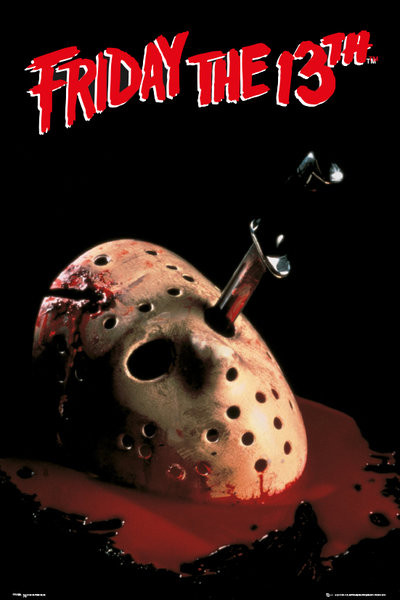 Today is Friday the 13th. There will be one more in 2023. Many people consider this day to be unlucky and try to avoid situations where bad luck may occur.
Today is Friday the 13th. There will be one more in 2023. Many people consider this day to be unlucky and try to avoid situations where bad luck may occur.
The History Man has been taking a look at this superstition.
History
Friday the 13th is considered an unlucky day in Western superstition. It occurs when the 13th day of the month in the Gregorian calendar falls on a Friday, which happens at least once every year but can occur up to three times in the same year. For example, 2015 had a Friday the 13th in February, March, and November; 2017 through 2020 had two Friday the 13ths each; 2016, 2021 and 2022 had just one occurrence of Friday the 13th each; 2023 and 2024 will have two Friday the 13ths each.
According to folklore historian Donald Dossey, the unlucky nature of the number "13" originated with a Norse myth about 12 gods having a dinner party in Valhalla. The trickster god Loki, who was not invited, arrived as the 13th guest, and arranged for Höðr to shoot Balder with a mistletoe-tipped arrow. According to Dossey: "Balder died, and the whole Earth got dark. The whole Earth mourned. It was a bad, unlucky day." This major event in Norse mythology caused the number 13 to be considered unlucky.
Christian associations
The superstition seems to relate to various things, like the story of Jesus’ Last Supper and crucifixion in which there were 13 individuals present on the 13th of Nisan, Maundy Thursday, the night before his death on Good Friday. Some believe that Judas Iscariot, who betrayed Jesus, was the 13th to take his seat, although this is not stated in the Bible.
In France, Friday 13th might have been associated with misfortune as early as the first half of the 19th century. A character in the 1834 play ‘Les Finesses des Gribouilles’ states, "I was born on a Friday, December 13th, 1813 from which come all of my misfortunes".
An early documented reference in English occurs in H S Edwards’ biography of Gioachino Rossini, who died on a Friday 13th:
"Rossini was surrounded to the last by admiring friends; and if it be true that, like so many Italians, he regarded Fridays as an unlucky day and 13 as an unlucky number, it is remarkable that on Friday 13th of November he passed away."
It is possible that the publication in 1907 of T W Lawson’s popular novel ‘Friday, the Thirteenth’, contributed to popularizing the superstition. In the novel, an unscrupulous broker takes advantage of the superstition to create a Wall Street panic on a Friday the 13th.
In Spanish-speaking countries, instead of Friday, Tuesday the 13th (martes trece) is considered a day of bad luck.
Triskaidekaphobia
Triskaidekaphobia (from Ancient Greek τρεισκαίδεκα (treiskaídeka) 'thirteen', and Ancient Greek φόβος (phóbos) 'fear') is fear or avoidance of the number 13. It is also a reason for the fear of Friday the 13th.
The term was used as early as in 1910 by Isador Coriat in Abnormal Psychology.
The film franchise
 Friday the 13th is an American horror franchise that comprises twelve slasher films, a television series, novels, comic books, video games, and tie‑in merchandise. The franchise mainly focuses on the fictional character Jason Voorhees, who was thought to have drowned as a boy at Camp Crystal Lake due to the negligence of the camp staff.
Friday the 13th is an American horror franchise that comprises twelve slasher films, a television series, novels, comic books, video games, and tie‑in merchandise. The franchise mainly focuses on the fictional character Jason Voorhees, who was thought to have drowned as a boy at Camp Crystal Lake due to the negligence of the camp staff.
Decades later, the lake is rumoured to be "cursed" and is the setting for a series of mass murders. Jason is featured in all of the films, as either the killer or the motivation for the killings.
The films have grossed over $468 million at the box-office worldwide. It was the highest-grossing horror franchise in the world until ‘Halloween’ (2018) was released, putting the Halloween franchise in the top spot.
***
So, be careful today! Although, if you live in Spain, maybe you have to worry about martes trece.
Acknowledgements:
Wikipedia
www.history.com
© The History Man
Tags: Bible, Donald Dossey, Friday the 13th, Gregorian calendar, Halloween, History Man, Isador Coriat, Jason Voorhees, Jesus, Judas Iscariot, Last Supper, martes trece, Triskaidekaphobia, Tuesday the 13th